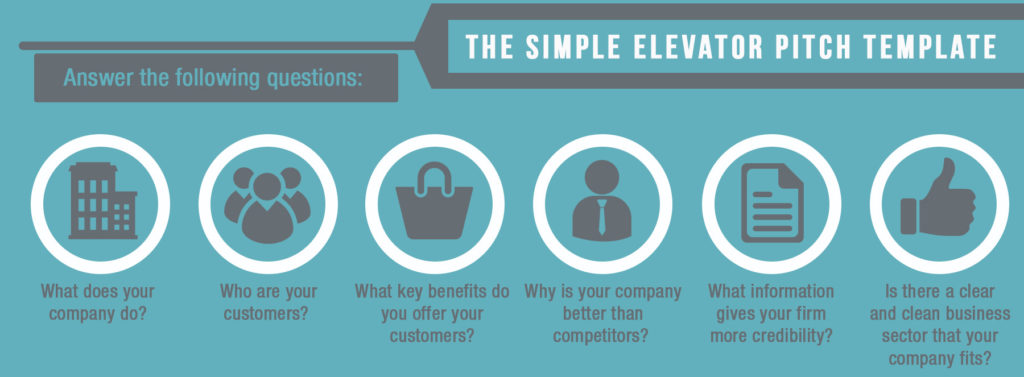What’s an elevator pitch?
According to Investopedia, a site that helps you understand complex business and financial concepts, elevator pitch is “a slang term used to describe a brief speech that outlines an idea for a product, service or project. The name comes from the notion that the speech should be delivered in the short time period of an elevator ride, usually 20 [to] 60 seconds.”
This makes sense, of course. But what if it’s you who is the “product, service or project”?
Fortunately, there’s an elevator pitch for that, too, provided you follow the rules. Let’s review five tips to craft a truly rock-solid personal elevator pitch that makes a killer first impression and achieves the goals you’ve set for it.
- Understand (And Formalize) Your Elevator Pitch’s Purpose
What do you want your elevator pitch to achieve?
You need to have a concise, compelling answer to this question before you write a single sentence. A personal elevator pitch tailored to what VCs or angels want to hear is going to be very different from the elevator pitch you give the senior developer you’re trying to poach from a competitor.
- Include Signature Professional Achievements As Part of a Narrative
Brevity is the soul of any effective elevator pitch, but that doesn’t mean it can’t include your professional achievements as part of a broader narrative around your overall effectiveness. In its own way, this New York-based executive’s bio — a de facto elevator pitch — hits all the high notes that you’d expect from a shorter executive summary without coming off as braggadocious or off-base.
- Work in an Easy Icebreaker
Is your elevator pitch really the place to work in one or more of the best icebreakers to use in professional settings?
Yes, actually. Lead your pitch with a lighter remark or question — something that temporarily (but playfully) knocks listeners off their priors and convinces them to pay attention for the duration.
- Underscore Your Core Values or Differentiators
Your elevator pitch is the perfect place to highlight the core values or differentiators you bring to the table. Remember, you’re trying to convince your audience to take some action here, as per your pitch’s stated purpose. It’s important to make the case for them.
- Answer the Question: “What Can You Do for Me?”
More to the point: your elevator pitch needs to demonstrate that you can do something for your audience that your audience can’t do for itself. Exactly what this is depends on what you’re capable of and who your audience is, of course.
Pitch Early, Pitch Often
Perhaps it’s too glib to assert that all the world’s indeed a pitch deck, or thesis presentation, or your personal TEDx Talk. One wouldn’t want to give the impression that they’re permanently switched into “Transmit” mode when they should be listening at least twice as much as they speak.
Then again, the world’s a competitive place. You need to be on your “A” game at all times, or someone else is going to step up to the plate in your stead. If that means you must distill your essence into a powerful elevator spiel so that you can pitch early and pitch often, then so be it.



